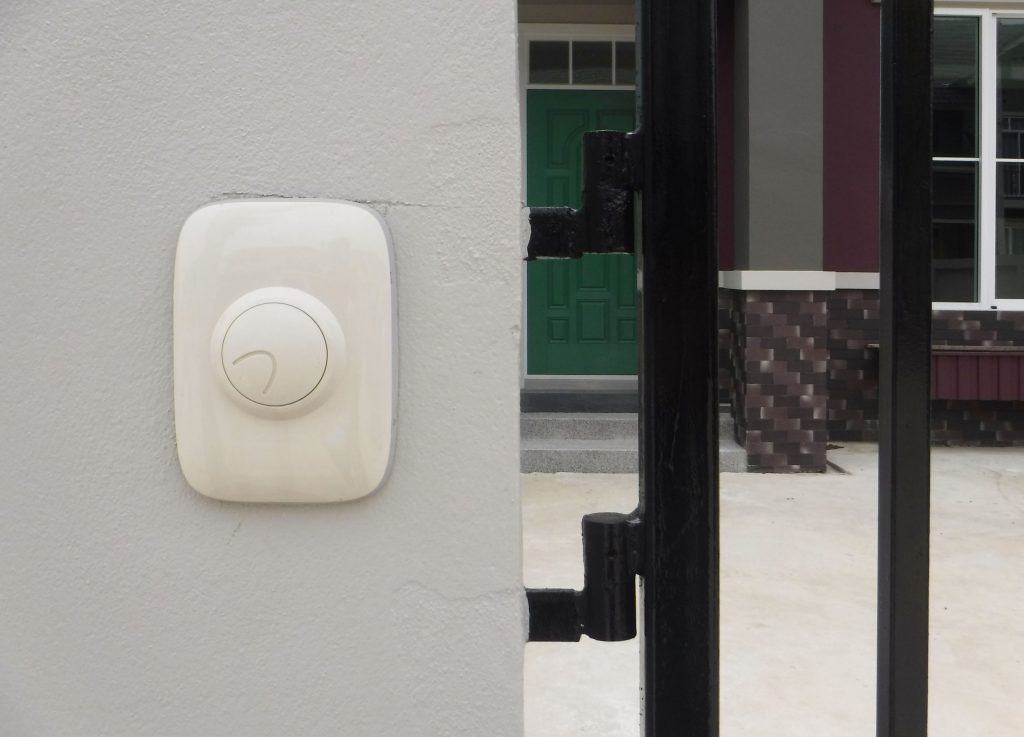
When I was home the other day the doorbell rang for the hundreth time, and I wondered can a doorbell ring by itself? So I did some research to find out whether it can, or if i’m being pranked.
So can a doorbell ring by itself?
Both a wireless and a wired doorbell can ring by itself.
A wired doorbell rings by itself largely due to sensor contact, and wiring shorts.
Wireless doorbells ring by themselves due to sensor contact or signal frequency.
No matter your choice in doorbell whether it’s high tech or the original doorbell ever created when you hear it ring you expect to find someone (or at least the Amazon package that you have been dying to receive) at the door.
Generally, when someone (or your package) isn’t there, you think it’s the neighbor boy playing ding dong ditch, not that your doorbell is broken. Despite your initial confusion, you can for sure confirm that it is your doorbell and fix it yourself.
How It Rings by Itself
A wired doorbell generally rings by itself due to age or improper installation. As your house (and doorbell) ages parts begin to wear out and wires might need replacing, or you may need to replace the doorbell entirely.
Most people don’t really think about needing to maintenance on their doorbells. It is often a feature of a home that is largely ignored until (or unless) you are receiving frequent deliveries or visitors.
Reasons why a wired doorbell may break, are vast, but why it may ring on its own boil down to two reasons (not including ghosts or the neighbor boy):
- A sticking button
- A wiring short
A wireless doorbell is still a doorbell, and has some of the same problems due to just the way doorbells are:
- A sticking button
- Recieving signals from other devices on the same frequency
How to Fix a Sticking Button
You can call yourself a regular exorcist after you solve your doorbell ghost problem. To fix the issue is much complex than you would think.
If you are fixing a stuck button, you generally just need to pull the button away from where it is making contact. The problem of “ringing on its own” is because the button is continuing to make contact with the sensor due to the button not popping back into place. If it is a problem that is more than a one-time occurrence, you will need to do a bit of maintenance.
The maintenance needed to fix a stuck doorbell for a long-term problem will need you to have tools to remove the doorbell which usually just entails a screwdriver. Make sure that you know whether it needs a Phillips or flathead screwdriver before you go digging in the garage for your tools.
Once you have unscrewed the doorbell, a thorough cleaning of the front and inside of the doorbell is necessary. Because it is exposed to the weather and outdoor elements, this can lead to a slow buildup of mud and dust that has contributed to your sticking doorbell problem.
Sometimes wasps, dirt dobbers, or other insects that use mud to build their nests may be to blame. If the buildup is significant you may need to take apart your doorbell.
If you want to be sure that your doorbell remains un-stuck, you can spray it with a little WD-40, which should only set you back $5 at most. This spray should ensure that anything extra gets out of those small spaces.
Fixing a Wired Doorbell

For proud wired doorbell owners who do not have a stuck doorbell but are still encountering a mysterious ringing, you have a wire short, or a disconnected wire. If your doorbell were to have any other problem, it would quit ringing altogether rather than ringing intermittently.
A wire short is easily remedied. It involves your handy-dandy screwdriver again to disconnect the doorbell from your house so you can see the inner wiring. Once you do that, you can see if any of your wires short, or are exposed. If a wire has a short, you can wrap it in electrical tape and your doorbell should be fixed.
If one of your wires is broken or has become disconnected, you can just use a piece of metal to connect the two wires and wrap it in electrical tape.
Sometimes when you unscrew your doorbell from your house you might see that the wires are getting a bit old and need replacing. Replacing your old wires with new wires is fairly simple, but if your doorbell system is that old, it costs about the same to just get a new doorbell altogether.
Changing Frequencies
So you have a wireless doorbell. It’s so high tech and you thought that upgrading would mean an end to the wiring in your house and thus all your problems. Unfortunately, you thought wrong. Wireless doorbells can still malfunction, but if your issue is continued ringing with no doorbell pushing, it is an easy fix.
Once fixed, your wireless doorbell shouldn’t cause you many other issues. Because it is wireless, wire shorts are never a concern so less maintenance is needed.
To understand the fix, you first need to understand how your wireless doorbell functions. The way wireless doorbells work is, well, wirelessly. The button functions as a transmitter. When pushed, it sends the signal to a receiver and the chime is heard.
While wired doorbells send the signal through a wire, wireless doorbells are connected to the receiver via a frequency. If both the receiver and transmitter are on the same frequency, then the continuous communication can occur.
The problem happens because there are so many wireless communications nearby. Your garage door button sends the signal to your garage on a frequency, as does your neighbor’s garage button. And it isn’t just garage door buttons that are to blame, it could be other types of wireless devices.
So, how do you fix it? You can’t really be expected to play Sherlock Holmes and scour the neighborhood to discover which wireless device is causing a signal to be inadvertently sent to your device.
The good news is if you happen to have a wireless doorbell, most units allow you to change the frequency or privacy code. Instruction material should have come with your device upon purchase, but if that pamphlet is long gone (I know mine is!) you can look up your product online by its name or product number which should be located inside the doorbell.
There are only certain bands of frequencies that the Federal Communications Commission allows consumers to use which is why there are only a few options to choose from when changing your frequencies.
If your wireless doorbell doesn’t seemingly allow you to change your frequency, then they may refer to what they call a privacy code. A privacy code just refers to a built-in switch that allows you to change your frequency. This is usually just a small button or slide on the side of your doorbell or receiver.
You may have to change the frequency of your doorbell multiple times, because different car alarms or garage door buttons can be on different frequencies and continue your problem.
If your doorbell persistently rings on every frequency available to you, you might try consulting the product company because you might have a product fault.
These remedies should do the trick, but if your doorbell is still giving you grief, try switching to a different wireless doorbell or going back to a hardwired one.
Related Questions
Is a wireless or wired doorbell right for you? Most homes are already hardwired for a doorbell. If your home is not pre-wired for a doorbell, then you are probably better off purchasing a wireless doorbell than running wiring. If your home is outfitted for a wired doorbell, you can still choose to switch to wireless.
What if my doorbell isn’t ringing? You may be experiencing any of the problems already explored in this blog post. If it isn’t one of those then it could be faulty wiring, a dead doorbell transformer, or your chime box may need replacing. If it isn’t one of those, then it might be time to upgrade or call in an expert.

